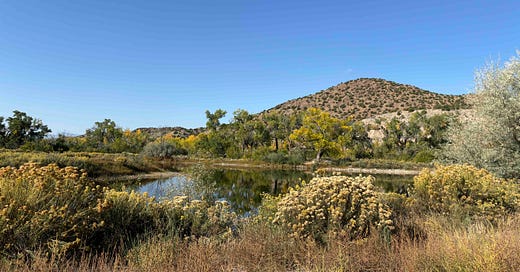Dear Dharma friends,
Hello from Philadelphia, USA where we are living through the final days before a presidential election. I know that for some, things are feeling tricky: tightly wound, high stakes, fraught and unstable. In this context, let me share something that could be comforting, hilarious, or utterly beyond belief: Tibetan Buddhists say that our essential nature is spacious. Isn’t that amazing?
Let’s not argue with this for a second. Let’s try it on. Our essential nature is spacious.
Here we are on earth. We have this short human walk. It’s a blip, really, in the cosmos scale of time. We spend a lot of that precious time twisting ourselves into little anger balls, fear balls, anxiety balls, and hatred balls. And then we go ping! Ping! Ping! off each other.
Maybe in more isolated moments in history the sound of our hatred, fear, greed and aggression was a mildly annoying noise, like leaf blowers in autumn. These days we are so wired in, and addicted to being wired in, that what was an ambient murmur has swelled into a crescendo. We are living in a stadium roar of chaos. That’s where we are now. Screaming at each other. Shrieking ourselves hoarse and then feeling resentful that our throat hurts.
From this place it is very hard to inhabit or even believe in our innate spaciousness. But it is still here.
It is our very spaciousness that scares us. When we touch it we mistake it for death-feeling, and fear arises. It might be the fear of nonexistence. Fear of collapse. Fear of annihilation. Whatever meaning we make out of touching our innate spaciousness, we tend to push it away. We react by pushing our own nature away.
In so doing, we constrict. Then, quite often, we make every effort to live in the constriction. We feel, somehow, more secure in it. It’s quite paradoxical and humorous. We constrict in order to feel safe.
Let’s take the example of anger. A certain kind of hot anger can help us feel solid. Real. Certain. You can get a little attached to that feeling of solidity. Do you know what I’m talking about? I’m not the only one who has experienced getting intoxicated by the certainty that big anger can bring, right? Sometimes, and this can be hard to admit, we even help ourselves get angry when we’re feeling sad, or uncertain. When times are changing and we don’t know where we are standing. Because it is the anger-feeling that is comfortable. That anger-feeling makes us feel solid, and therefore, alive.
It’s as if we bend ourselves into the shape of a pretzel (hello, Philly!) and think that we are all supposed to be shaped like a pretzel. If we’re parents, we diligently mold our children into little pretzels. We may even get angry when someone comes strolling along on two feet, swinging their arms and whistling. We say, “Who is that weirdo?”
These poisonous emotions are called kleshas in Sanskrit. They are mental states that cloud our inner spaciousness. We can think of them as the clouds in a sky. Blue sky is there even on a hammered-metal sky day. Some of us have lived weeks, months, and even years under the grey sky, but still we know the world is turning and at some altitude that blue sky has appeared.
Our spaciousness is our freedom. It is our ability to be present for the bliss/disgust/surprise/revulsion or whatever is happening. Spacious nature is so large that it can encompass whatever is showing up. There is no attempt at ego manipulation. There is no overlay. Our capacious state can actually tolerate everything. All outcomes. (Imagine!)
So how do we do that?
Meditation. Silent sitting meditation is what awakens us to our nature. There are many names for spaciousness. It can be called Buddha-mind, Buddha-nature, or inner awakening.
Choose the phrase that works for you. Perhaps Buddhist language feels like you’re trying on an exotic culture. That’s fine. This is a 2,500 year-old religion. Tibetan Buddhism originated in the 8th Century with Padmasambhava and Yeshé Tsogyal so what we use, traditionally, is actually medieval in terminology. Part of the work of a modern dharma teacher like me is to translate the teachings. So maybe Buddha nature is too Buddhist-y for you. What’s important is that you find the phrase to describe the thing so you work on finding it in yourself.
Why? So many of us are running around in 2024 like headless chickens. We’ve noticed that the sky is falling. We’re knocking on doors (heroic); calling people (heroic); texting people (heroic!). Buddhism would say, though, that we need to solve the root problem, and that is motivation.
From motivation flows action, from action flows consequence. We can’t just try and fix the consequences of ____________ (environmental collapse; economic collapse; societal collapse). It isn’t working so well anyway. We need to go all the way back to our motivations.
And to do that we need to be in touch with spaciousness.
And to do that, we need to meditate.
Our awakened nature is self-arising. When we sit in silence, we let the chitter-chatter unspool until it subsides. It’s like a toddler in a tantrum. Eventually, they tire out. (Some toddlers go longer than others!)
We let the self-justifications quiet. Everyone has them. You might be telling yourself that you cannot meditate because of race/gender/class/unique childhood trauma. I’ve heard almost every non-meditator in NW Philly explain why they can’t meditate. Y’all tell some beautiful stories.
It takes time with your butt on a cushion for your ego to run out of stories and just… settle.
Retreat can be useful here, because you rack up a lot of hours on a cushion. I know it’s annoying that I learned to meditate as a kid and that I have been doing it forever, so I’ve been reflecting on my adult practice. In the years before we had kids, my husband and I would do one long retreat a year, and a bunch of weekend ones. That was a helpful habit. I recommend it. Having seasonal submersion in meditation kept my body/mind in touch with the spaciousness inside.
It’s important to build a meditation practice into your everyday for the same reasons. We need to stay in touch with our spaciousness.
Look. If we waited for the perfect circumstances, we would never meditate. Not many of us in 2024 have the chance for 3-year retreat, or (my current fantasy) a meditation cabin within driving-distance of my family home, that has no cell phone service and an immense view.
It would be nice! But the wondrous house that is Earth is overheating. Time is up. We know this.
The more you meditate, the stronger your practice is, the more you touch, then drop in regularly, to your spacious nature. It is time to evolve ourselves there.
Think of training for anything. You need to make a commitment and stick to it. You need to engage your discipline. It works better if you can put together a cohort to join you in meditation commitment. That is called sangha in Buddhism. It is your spiritual community.
The habit of meditation is important because that is the means by which you open up to the spaciousness within yourself. It is your deep knowing. Your intuition beyond the thinking mind. Spaciousness taps a vast wisdom beyond what our intellectual mind can understand. It can hold more data points without overwhelm.
So much of our suffering comes from the decisions made from small self, small mind, and small intentions. The way to solve samsara is to change our minds.
For that, we must make a sacred commitment to be in touch with our spaciousness.
Be well. Keep finding your breath.
Sunisa






